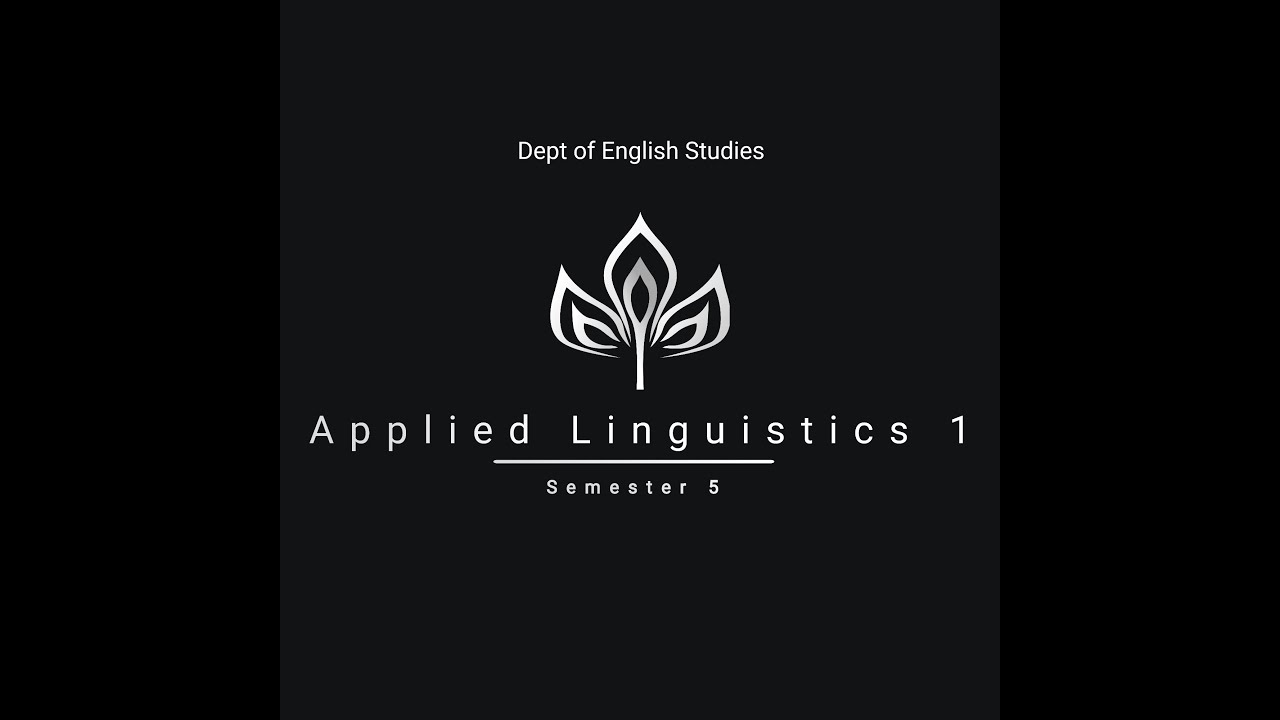Strategies-Based Instruction | Strategies in Learning English
Summary
TLDRThis video script delves into strategies for effective language learning, emphasizing the importance of learner autonomy. It outlines direct strategies like memory enhancement, cognitive development, and compensation techniques. The script also covers metacognitive strategies for self-regulation, effective strategies for emotional management, and social strategies for interaction. By mastering these, learners can optimize their language acquisition and future educators can better prepare to teach.
Takeaways
- 📚 Direct strategies for language learning include memory, cognitive, and compensation strategies to enhance learning efficiency.
- 🔗 Memory strategies such as grouping, associating, and contextualizing new words aid in better retention and recall.
- 🎨 Techniques like semantic mapping and using keywords help in visual and conceptual understanding of new vocabulary.
- 🔁 Reviewing material at spaced intervals is crucial for long-term memory consolidation.
- 🏋️♂️ Physical responses and mechanical techniques like acting out expressions or using flashcards can reinforce learning.
- 🧠 Cognitive strategies involve repeating, practicing sounds and writing systems, and recombining known elements to form new structures.
- 📖 Analyzing and reasoning strategies include deductive reasoning, analyzing expressions, and transferring knowledge from one's native language.
- 📝 Compensation strategies like guessing intelligently and overcoming limitations through various means are essential when faced with language barriers.
- 🤔 Metacognitive strategies encompass centering learning, arranging and planning, and evaluating one's progress to enhance self-awareness and control over the learning process.
- 🌟 Effective strategies focus on emotional aspects like lowering anxiety, self-encouragement, and taking one's emotional temperature to maintain a positive learning attitude.
- 🤝 Social strategies are vital for language learning, emphasizing the importance of asking questions, cooperating with others, and empathizing to improve communication skills.
Q & A
What does the video discuss as key to learner autonomy and language learning?
-The video discusses various strategies that are key to learner autonomy and language learning, including strategies that foster memory and cognition, metacognition, effective strategies, social strategies, and more.
What are direct strategies and what are some examples mentioned in the video?
-Direct strategies are methods that directly involve the learning process. Examples include memory strategies like creating mental linkages through grouping, associating or elaborating, and placing new words into context, as well as cognitive strategies like repeating, practicing with sounds and writing systems, and analyzing expressions.
How does the video describe the process of creating mental linkages?
-Creating mental linkages involves three ways: grouping data points into larger wholes, associating or elaborating by connecting the unfamiliar with the familiar, and placing new words into a context using techniques like acronyms and semantic mapping.
What is the significance of reviewing in language learning as per the video?
-Reviewing is significant as it helps reinforce learning. The video suggests reviewing at carefully spaced intervals, starting close together and then more widely spaced apart, to enhance memory retention.
Can you explain the concept of metacognitive strategies as discussed in the video?
-Metacognitive strategies involve learners' ability to understand their own thinking and learning processes. They include centering learning, arranging and planning learning, and evaluating learning, which help learners focus, organize, and assess their language learning.
What are compensation strategies and how do they assist in language learning?
-Compensation strategies are used to overcome difficulties in language learning. They include guessing intelligently using linguistic cues or context clues, overcoming limitations in speaking and writing, and adjusting messages to convey meaning effectively.
How does the video define effective strategies in language learning?
-Effective strategies refer to emotions, attitudes, motivations, and values that influence language learning. They include lowering anxiety, encouraging oneself, and taking one's emotional temperature to control these factors and enhance language learning.
What role do social strategies play in language learning according to the video?
-Social strategies are crucial as language is a form of social behavior. They involve interacting with others to improve language skills, such as asking questions, cooperating with peers and proficient users, and empathizing with others.
Can you provide an example of a cognitive strategy mentioned in the video?
-An example of a cognitive strategy is practicing naturalistically, which involves participating in a conversation to practice the new language in a natural and realistic setting.
How does the video suggest learners can find out about language learning?
-The video suggests that learners can find out about language learning by reading books, talking with other people, and then using this information to improve their own language learning.
Outlines

Dieser Bereich ist nur für Premium-Benutzer verfügbar. Bitte führen Sie ein Upgrade durch, um auf diesen Abschnitt zuzugreifen.
Upgrade durchführenMindmap

Dieser Bereich ist nur für Premium-Benutzer verfügbar. Bitte führen Sie ein Upgrade durch, um auf diesen Abschnitt zuzugreifen.
Upgrade durchführenKeywords

Dieser Bereich ist nur für Premium-Benutzer verfügbar. Bitte führen Sie ein Upgrade durch, um auf diesen Abschnitt zuzugreifen.
Upgrade durchführenHighlights

Dieser Bereich ist nur für Premium-Benutzer verfügbar. Bitte führen Sie ein Upgrade durch, um auf diesen Abschnitt zuzugreifen.
Upgrade durchführenTranscripts

Dieser Bereich ist nur für Premium-Benutzer verfügbar. Bitte führen Sie ein Upgrade durch, um auf diesen Abschnitt zuzugreifen.
Upgrade durchführenWeitere ähnliche Videos ansehen

Individual Learner Differences In SLA

Standards-Based Language Teaching

European Language Portfolio - Promoting automy

How to Learn a Language: INPUT (Why most methods don't work)

Metode Qira'ah Pembelajaran Bahasa Arab

6 способів змусити мозок запамʼятати будь-що ШВИДКО: НМТ, іспити, мову | Доведені наукові способи
5.0 / 5 (0 votes)
